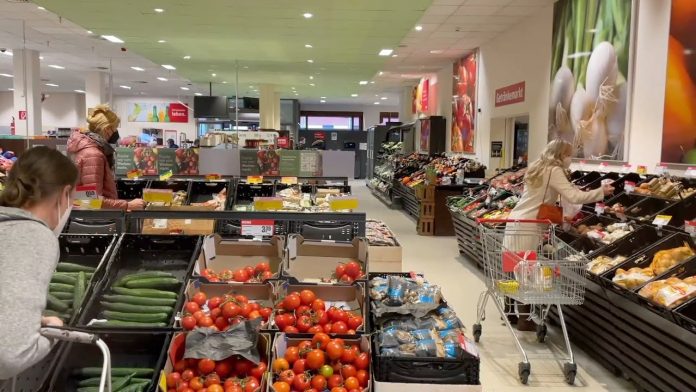The kingdom has been grappling with 14-year-old inflation that has driven up the basic cost of living — coming as the country prepares for a looming national election.
BANGKOK (AFP) – In a rain shelter near Bangkok’s Grand Palace, dozens of unemployed Thais queued alongside the homeless waiting for free meals as 14 years of high inflation raised the cost of living – causing a headache for the government ahead of the election. impending public.
The leadership came to power eight years ago under Prayut Chan-o-cha, promising to provide stability after prolonged protests began to affect the kingdom’s economy.
However, it has struggled to make good on its pledges and the damage the pandemic has done to the travel industry has been compounded by a global inflation crisis that has driven prices beyond the reach of many people.
In a move seen as symbolic of the severity of the situation but likely to cause more pain for consumers, the government recently raised the price of instant noodles for the first time in more than a decade after manufacturers moved higher.
For those waiting in the rain, the effect is already painfully obvious.
Unemployed Thais line up with the homeless while waiting for free meals in Bangkok
“A few years ago, I was able to buy my own food, but now food is expensive,” said Somchai, who gave only one name and was unemployed.
“I couldn’t stand the prices, so I have to go out and find food donations like this,” the 42-year-old said after collecting his meal.
A general election should be held by March, giving the coalition government led by the army-friendly Palang Pracharat Party (PPRP) little time to turn things around.
– Promises not kept –
In an effort to ease the suffering of struggling Thais, the government has approved a proposal to raise the minimum daily wage to between $8.83 and $9.53.
Adding to the HDP’s woes, Prayuth was suspended from his post last month while the Constitutional Court decides whether he has reached his term as prime minister.
In an effort to ease the pain for struggling Thais, the government approved a proposal to raise the minimum daily wage to between 328 and 354 baht ($8.83 and $9.53) after it earlier agreed to extend the fuel tax credit.
But political analyst Nabisa Wittolkiat at Naresuan University told AFP that the measures were taken to “win votes” but doubted they would upset many voters.
“The damage is irreparable,” she said.
The economy appears to be a major factor in the election, and Nabisa said voters will not forget the HDP’s pledge to improve it.
“However, once they come to power, they cannot fulfill the promise,” she said.
And while the minimum wage goes up somewhat, Tmasat University for International Business
In a move likely to cause more pain to consumers, the government recently raised the price of instant noodles for the first time in more than a decade.
“What we now need to look at are more targeted policy measures that will help alleviate the difficulties caused by the rising cost of living among low-income Thai families,” she said.
Growth remains sluggish – just 2.5 percent in the second quarter, weighed down by rising inflation despite the return of foreign visitors after the pandemic shutdown.
“You will see that even Thailand’s GDP growth rate is the slowest in the region,” Paveda said.
The Prayut Chan-o-cha administration promised stability when it came to power, but struggled to fulfill its pledges
Pavida also warned that price hikes, such as those for instant noodles, could be a harbinger of further increases in food items.
“For those on lower incomes, who spend most of their income on food or energy, they will be most affected by this,” she said.
“The way we eat it has changed a lot,” said Veerayuth Sae-ung, who was queuing to buy a noodle lunch in central Bangkok.
“I used to come here to buy lunch like this every day, but recently I can no longer buy from the stalls every day,” said the 34-year-old.
Greg Lange, co-founder of the Bangkok Community Aid Foundation which distributes 500 meals a day, warned that they are helping more and more people.
“Even despite the rain, there are some times when the line goes two or three squares,” he said.
Volunteers from the Bangkok Community Assistance Foundation serve free meals in the Thai capital
“I think it has been very difficult for the elderly to make ends meet,” co-founder Friso
Bouldervaert added.
Bouldervaert said many of the elderly people he helped have lost contact with their families and could not survive on the 600 to 1,000 baht government subsidy per month.
“You can’t survive on it. That’s exactly the case,” he said.
“So it was really difficult, but of course with the price increase, it becomes difficult for everyone to make ends meet.”





























